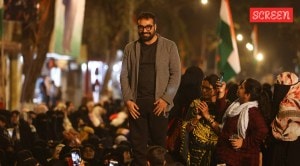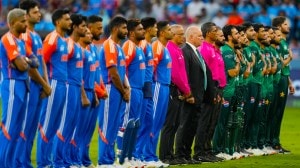Don’t call us war widows, we are fighting, winning
Sudhira Devi’s life should have come to a standstill at 19, when her husband died leaving her a war widow, with a one-year-old son. Lik...

Sudhira Devi’s life should have come to a standstill at 19, when her husband died leaving her a war widow, with a one-year-old son. Like hundreds of women in Rajasthan falling in the same bracket, she had dropped out of school, most of her adult years were spent under a ghoonghat and she had never been outside her village.
But the state that sends the maximum numbers to the defence services and where a martyr is cremated almost every other week is witnessing a change. Across Rajasthan, home to around 1,300 war widows, women like Sudhira are leaving their tragedies behind to come into their own. Stories of despair, property disputes and family tensions are being replaced by stories of achievements, about war widows making ‘‘unimaginable strides’’ to live a life with dignity and about their children making it to business schools.
In the past three years, Sudhira has travelled a long distance from her Sonasar village to the Jhunjhunu town, where she works as a clerk in the Sainik Kalyan Vibhag office and earns a basic salary of Rs 3,500.War widows
‘‘I didn’t really have a choice,’’ says Sudhira. ‘‘My husband, Sepoy Dev Karan, died in April 2000 and I was promptly labelled a war widow. People either sympathised with me or believed that the money I got would see me through. But life is never that simple.’’
So Sudhira got herself an education. A Class X failure, she rewrote the exam, ensured she passed and then applied for a job. Even while her application was being processed, she supervised the construction of her husband’s statue in her in-laws’ village. By the time it was unveiled, she had spent Rs 4 lakh. ‘‘I put the remaining money into a fixed deposit for my son. Then I got the job and now it pays for my basic expenses, besides my husband’s pension,’’ says Sudhira.
Wing Commander (retd) S.R. Sura, the Zilla Sainik Kalyan Adhikari, calls the change ‘‘phenomenal’’. Of the 247 widows in his Jhunjhunu district, he says, more than 90 per cent have gone back to school and are applying for jobs.
‘‘Nobody denies that there are problems,’’ remarks Brigadier (retd) Bhagwan Singh, director of the state Sainik Kalyan Vibhag. ‘‘But there is also no denying that a new breed of young women are emerging out of these tragedies as winners.’’ While there were 890 widows in the state before Kargil, in the past four years, 317 women have been widowed and the numbers are still rising.
Not very far from where Sudhira checks all the office mail, 24-year-old Sunita is working out the economics of farming. She is determined to cultivate the 30 bighas of land that belonged to her husband Sepoy Babu Lal Puniya, who died in J-K in August 2002. Widowed in the early days of the Kargil conflict, Bhanwri Devi insists that her in-laws send her accounts of the petrol pump she was allotted as compensation. Her husband was part of Capt S. Kalia’s team that went missing after the border war began. A Class V pass, Bhanwri is determined to learn how to read and write. A teacher comes to instruct her at her Jodhpur house. Strewn around them are a dozen odd notebooks filled with Bhanwri’s attempts to change her world. She has no doubt she will.
Photos




- 01
- 02
- 03
- 04
- 05



























